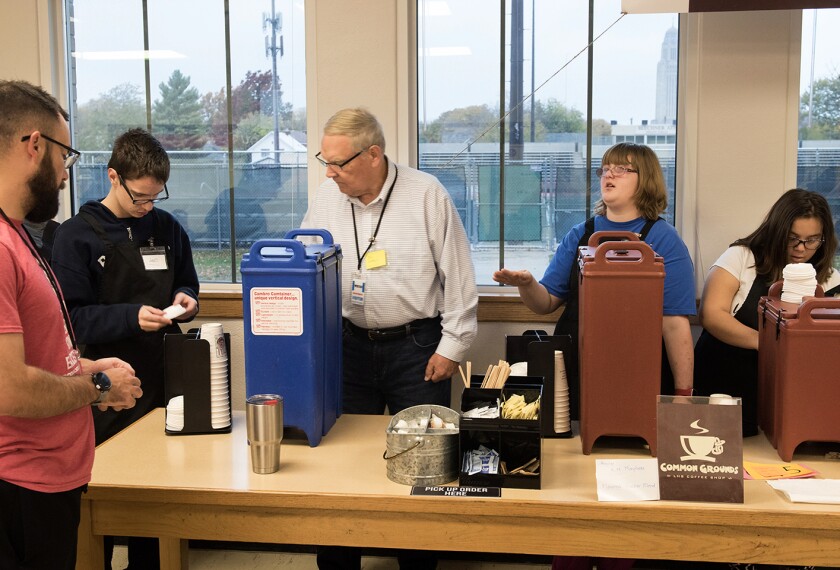The U.S. Department of Education has offered some legal guidance to schools about their requirements to educate special education students in times of a swine flu outbreak.
Some schools closed their doors after cases of swine flu first appeared last spring. Not much was known about how schools would handle educating students with disabilities if there were ever long school closures or long absences by students because of the H1N1 virus. With a new school year under way, the U.S. Department of Education released legal guidelines Sept. 1.
Federal laws like the Individuals with Disabilities Education Act, the Americans with Disabilities Act, and Section 504 of the Rehabilitation Act do not specifically address what schools should do if they are closed for extended periods of time for special circumstances like the swine flu, the guidance says, but schools must be sure not to discriminate against students with disabilities in providing services.
When educational opportunities are provided to the general student population, students with disabilities must have equal access. To “the greatest extent possible,” the students should receive the services in their Individualized Education Plans and Section 504 plans, the guidelines said.
If schools are closed and do not provide any educational services to the general student population, then they would not be required to provide services to special education students either. But once school resumes, the schools need to determine whether a student with a disability needs compensatory education to make up for any skills that may have been lost, the Education Department said.
Technology will be helpful in times of a swine flu outbreak, the guidelines said. The department suggests that school officials consider ways of providing educational materials in accessible formats or through the use of auxiliary aids and services in order for a student with a disability to participate in a distance-learning program.
If a school continues to teach the general school population during an H1N1 outbreak, but is not able to provide services to a student with a disability based on that student’s existing IEP, the student’s IEP team determines which services can be provided to best meet the child’s needs.
The team may meet by teleconference or other means to determine if some, or all, of the identified services can be provided through alternate or additional methods such as through tutoring by phone, the Internet, or closed-circuit programming. Schools should use this same plan for students who have a Section 504 plan. Then when school resumes, the teams can assess what makeup services would be needed, the guidelines said.
IEP teams would not be required to meet in person if a school closes. IEP teams,
however, must continue working with parents and students with disabilities, including conducting informal assessments or formal assessments of the student, including parent surveys and standardized reports, and offer advice, as needed. If an evaluation of a student with a disability requires a face-to-face meeting or observation, the evaluation would need to be delayed until school reopens. Evaluations and reevaluations that do not require face-to-face assessments or observations may take place while schools are closed, if the parent consents, according to the guidelines.
For special education students who have lost skills because of prolonged absences from school, the IEP team should determine to what extent compensatory services are needed. These services can be delivered by providing extended school-year services, extending the school day, providing tutoring before and after school, or providing additional services during regular school hours, the guidelines said.
Here is a link to the full text of the guidelines. Please comment about whether you think schools are prepared to meet this special challenge. If you are a parent, are you concerned about this issue?




